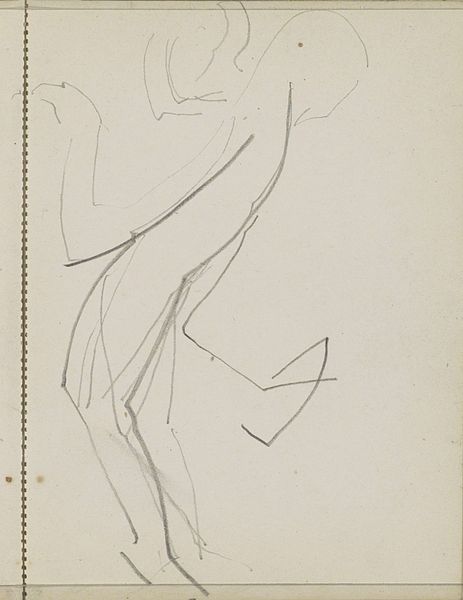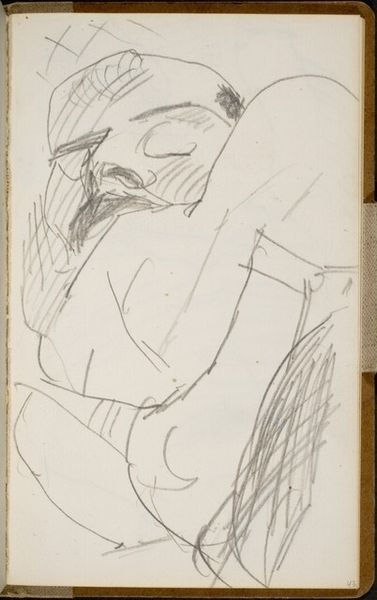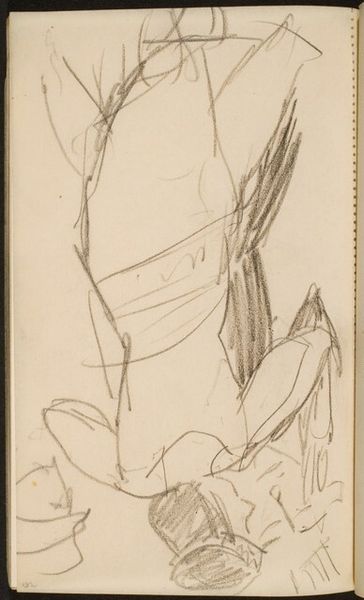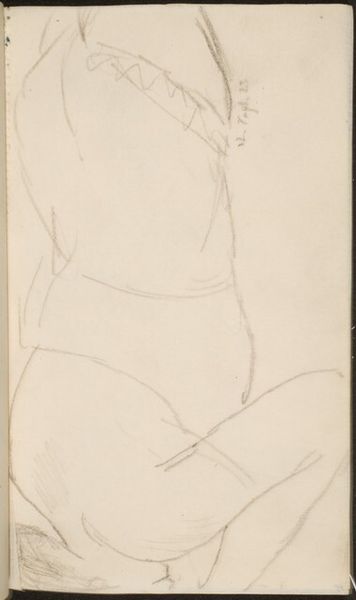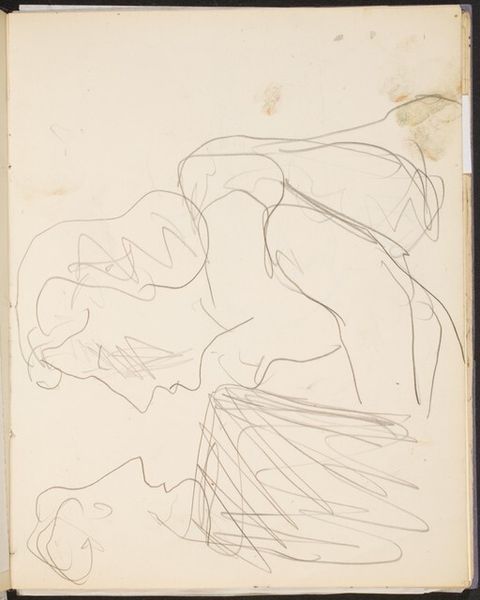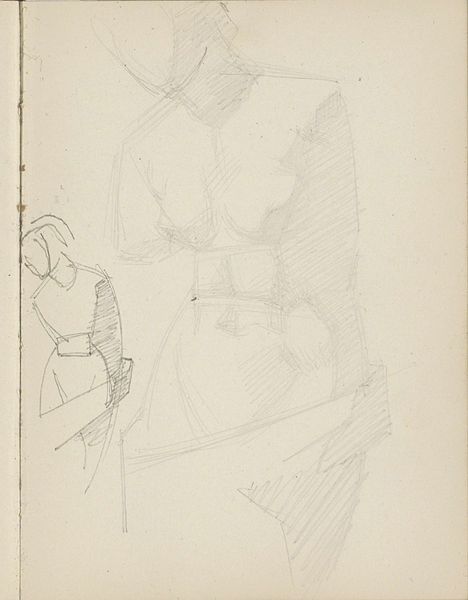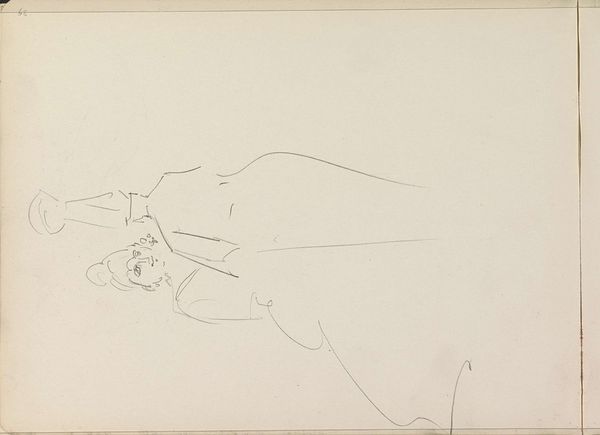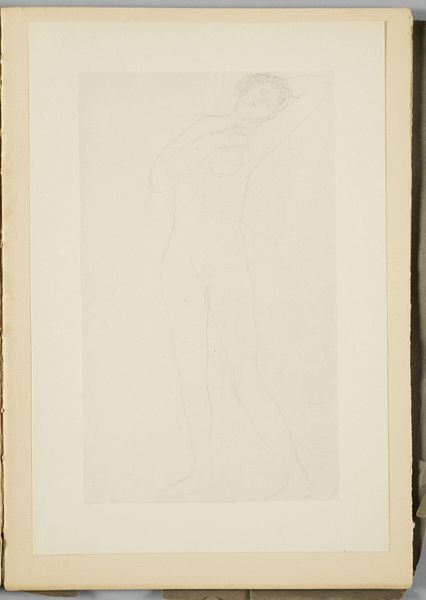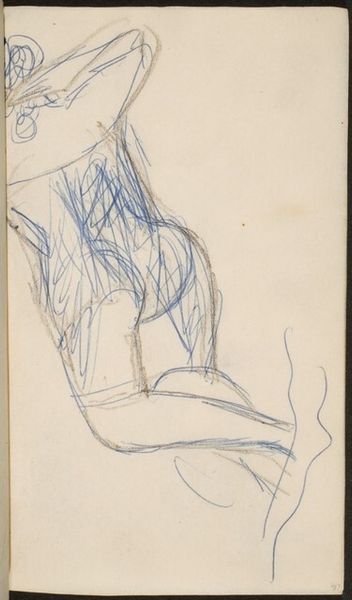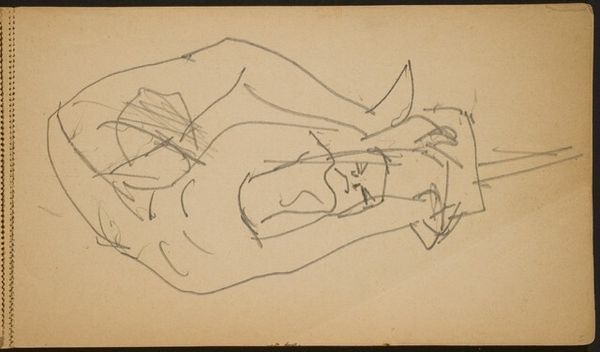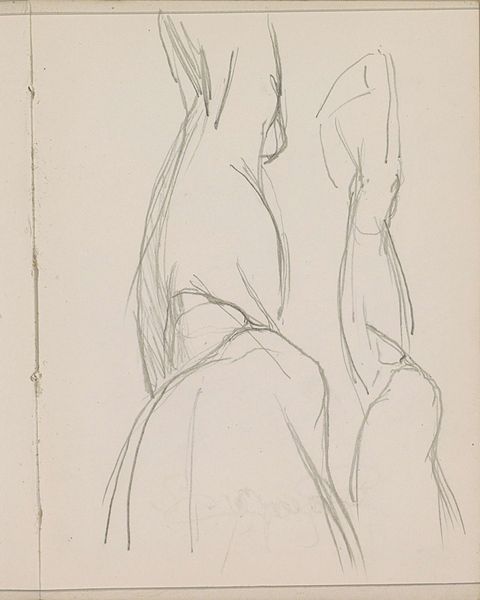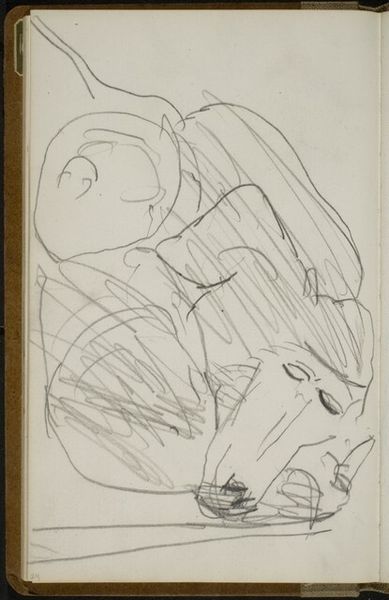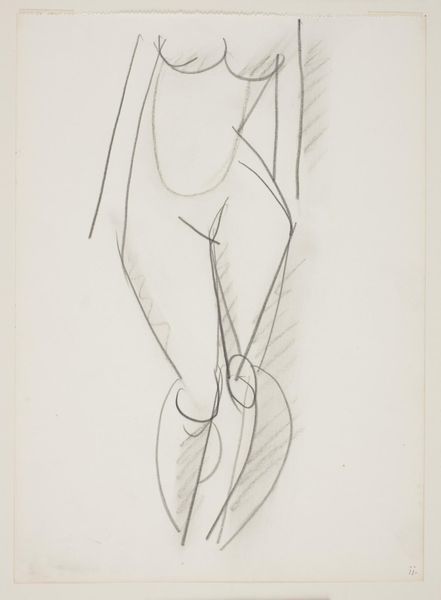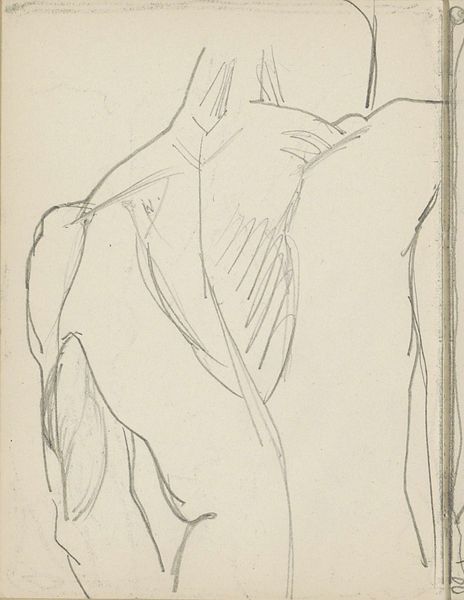![Initial Sketch [p. 49] by Max Beckmann](/_next/image?url=https%3A%2F%2Fd2w8kbdekdi1gv.cloudfront.net%2FeyJidWNrZXQiOiAiYXJ0ZXJhLWltYWdlcy1idWNrZXQiLCAia2V5IjogImFydHdvcmtzLzgwMjlmM2NiLWUzZWYtNGViOS1iNGYzLTM4M2M4MjBlNWYzNC84MDI5ZjNjYi1lM2VmLTRlYjktYjRmMy0zODNjODIwZTVmMzRfZnVsbC5qcGciLCAiZWRpdHMiOiB7InJlc2l6ZSI6IHsid2lkdGgiOiAxOTIwLCAiaGVpZ2h0IjogMTkyMCwgImZpdCI6ICJpbnNpZGUifX19&w=828&q=75)
drawing, paper, pencil
#
portrait
#
drawing
#
german-expressionism
#
figuration
#
paper
#
pencil
#
expressionism
Dimensions: sheet: 17 x 11.6 cm (6 11/16 x 4 9/16 in.)
Copyright: National Gallery of Art: CC0 1.0
Editor: This is "Initial Sketch," from page 49 of a sketchbook by Max Beckmann. It appears to be a pencil drawing on paper. I find it very raw and immediate; you can almost feel the artist working out the form. What do you see in this piece, and how might we interpret it? Curator: I see a window into Beckmann's process, a glimpse behind the curtain of the polished, often enigmatic paintings he's known for. Beckmann, a German Expressionist, grappled with the trauma of World War I and the subsequent social and political upheavals. How does this quick sketch, with its almost hesitant lines, resonate with those tumultuous times? Editor: It's like he’s searching for something, a stable form perhaps, but not quite finding it. Is this uncertainty reflected in his other works from that period? Curator: Absolutely. This tentative quality reflects the broader societal anxieties. Consider how many artists of this era used fragmentation and distortion to convey a sense of disillusionment with established orders. The incompleteness, the very act of sketching, becomes a powerful commentary on the fractured nature of reality itself. What do you make of the figure’s obscured face? Editor: It feels almost like a deliberate erasure, hiding the individual’s identity. Almost as if they represent everyman. Curator: Precisely! In Expressionism, the individual is often symbolic of broader societal issues. Beckmann uses figuration, yet strips away specificity, highlighting a collective sense of unease and alienation. By leaving the face undefined, is Beckmann inviting viewers to project their own experiences and anxieties onto the subject? Editor: That's a fascinating idea, making it a mirror reflecting the viewer's own struggles. I now look at it in a completely different way. Curator: Art, especially from periods of conflict and change, allows us to interrogate our own positions within the social and historical landscape. Looking at Beckmann in the context of gender, race and politics really amplifies the questions and the work itself.
Comments
No comments
Be the first to comment and join the conversation on the ultimate creative platform.
